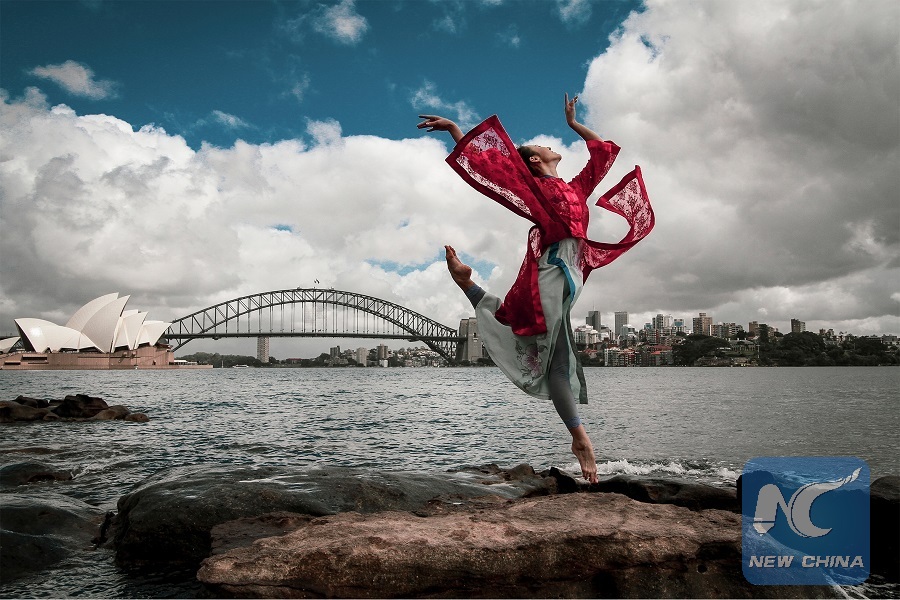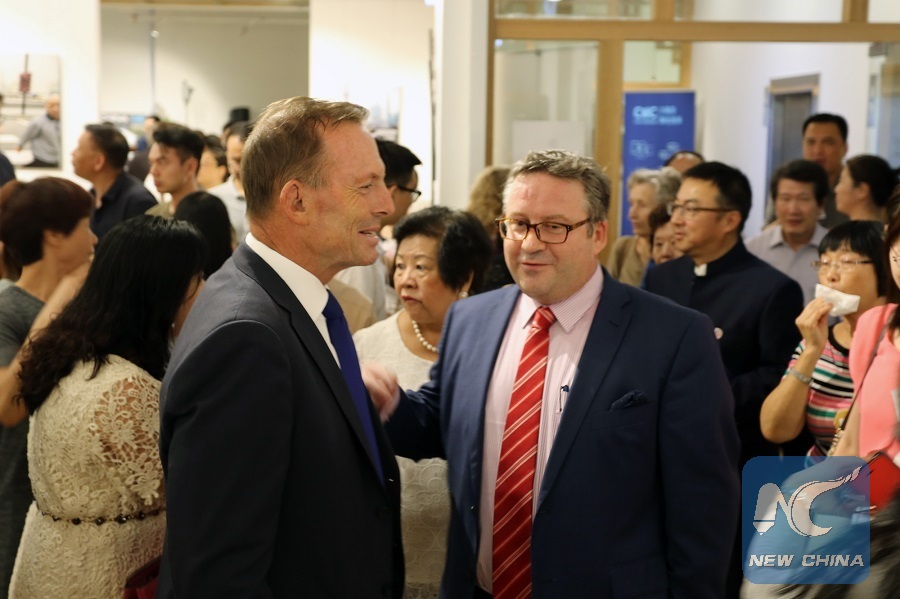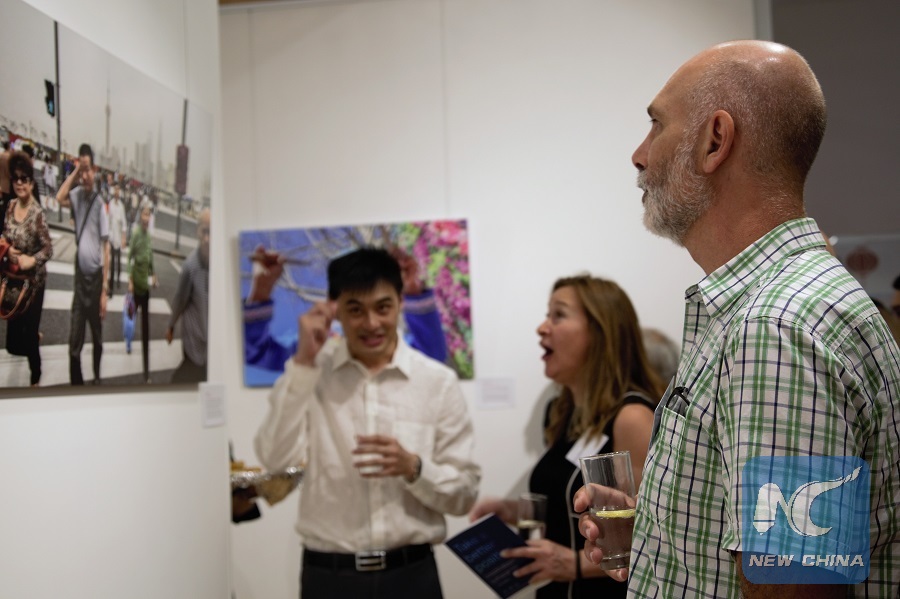
This photo exhibited at the exihibition shows a Chinese dancer with the Sydney Opera House and Harbor Bridge in the background. (Photo courtesy of organizer)
by Duncan Murray
SYDNEY, Feb.1 (Xinhua) -- Sydney's Lunar New Year events got off to an early start on Thursday night with the opening of a photography exhibition depicting modern China, attended by former Australian Prime Minister Tony Abbott.
"China moments in Time" features the work of Marcus Reubenstein, an Australian photojournalist who has travelled extensively throughout China, visiting 23 cities and capturing over 19,000 images.
Reubenstein told Xinhua that he was moved to create the show not only by what he saw in China, but what he learnt about the country and its people.
"I realized very very early that Western culture and Chinese culture are different, but Western values and Chinese values are not that different," Reubenstein said.
"We (Australians and Chinese) care about our children, we care about our families, we want a better life for ourselves, we want to live in better communities and have the best for our fellow man."

Marcus Reubenstein (R), an Australian photojournalist, introduces the photos exhibited at the exhibition to Former Australian Prime Minister Tony Abbott (L). (Photo courtesy of organizer)
Former Australian Prime Minister Tony Abbott launched the event, describing Reubenstein's work as a privileged opportunity for Australians to see China through the eyes of a sensitive and reflective traveller.
Abbott added that being one of the first events in Sydney's Lunar New Year calendar made the occasion particularly auspicious.
With more than a million Australians of Chinese background and Mandarin one of the most frequently spoken languages other than English, Abbott said that China and Australia are both highly important to each other.
"While our countries are important to each other, while our countries matter for each other, we don't always know each other as well as we should -- that's exactly what Marcus Reubenstein has given us tonight, access to his travels in China, access to his insights into the Chinese character, the Chinese way of life."
Gallery attendees were equally impressed, with local resident Bernadette Cunningham telling Xinhua that the photos made her want to visit China for herself.
"I've never really had a wanting to go to China, not for any reason in particular, but seeing these photos now it's really opened my eyes to it, and I'd love to take a trip, it's beautiful, I wasn't expecting this at all," Cunningham said.
As well as the everyday people he encountered on the streets of China, Reubenstein's photographs depict Shaolin monks, dancers, acrobats, horsemen and even a characteristic giant panda.

A visitor looks at a photo during the exhibition entitled "China moments in Time" in Sydney on Jan. 31, 2019. (Xinhua/Guo Yang)
Often travel photography can prove difficult, and subjects unwilling to be photographed but Reubenstein said the response he got from the Chinese people was "fantastic."
"Wherever I have gone I've been met with welcoming smiles and acknowledgment by people who don't know who I am, they don't know where I'm from, they don't know what I'm doing," he said
"Particularly in smaller provinces and smaller cities the Chinese people are genuinely heart-warmed, and engaged with someone who comes and shows an interest in their daily lives and their society."
Reubenstein said his favourite photographs in the exhibition are a series of three, depicting China's old and new generations.
One is an old man, the other is a baby and the third is an old lady holding her grandchild. Reubenstein calls them "Old, New, and Two Generations."
Rubenstein's respect and reverence for his subjects is obvious, and with that he is able to take their spirit and humanity and make it a relatable and enduring aspect of his photographs.
"While we know there are many differences between life here and life there, different languages, different institutions, and to some extent different values, what shines through all of these photos is a wonderful humanity," Abbott said.
"And that in the end is what all of us have in common, and it's by better appreciating that shared humanity that is the surest foundation for human progress and lasting peace."

